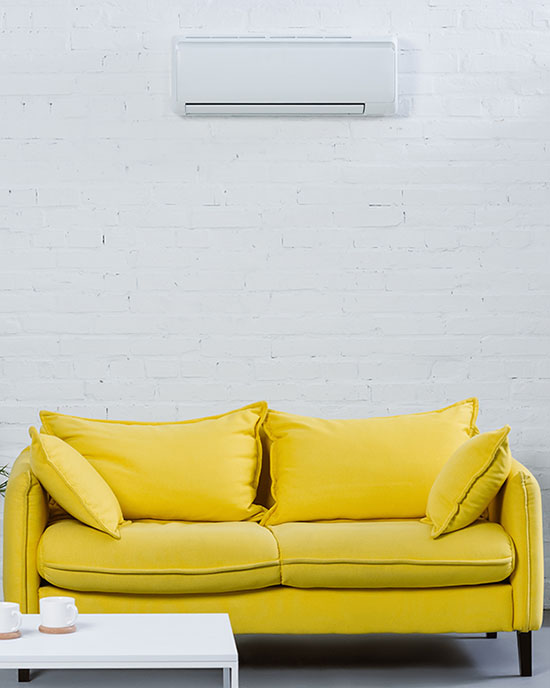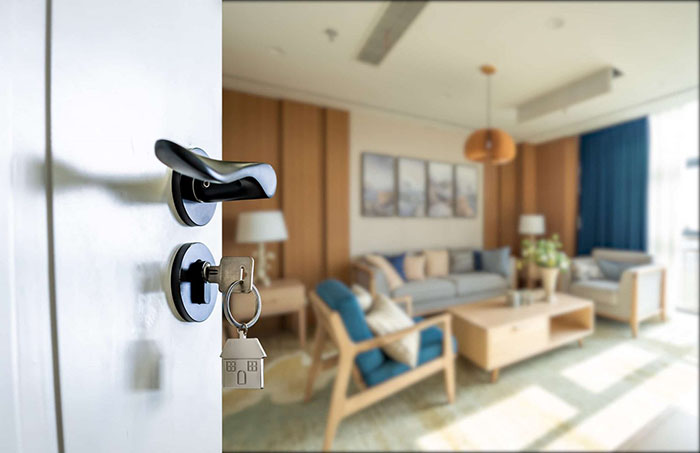The Future Of Hvac Technology: Trends To Watch In Phoenix
Heating, Ventilation and Air Conditioning (HVAC) technology is an essential part of modern life in the Phoenix area. With temperatures often reaching into triple digits during the summer months, efficient cooling systems are a must for comfort and safety.
As HVAC technology continues to evolve, many new trends are emerging that will shape how we cool our homes and businesses in years to come. This article looks at five key areas where advances in HVAC technology can help us beat the heat while improving energy efficiency and reducing costs.
By examining these trends, readers can gain insight into what they may need to look out for as they consider their own needs now or in the future.
Smart Technology And Automated Controls
In the Phoenix area, there is a growing trend in HVAC technology towards smart homes and automated controls.
Smart home systems are becoming more popular due to their ability to automate various tasks for convenience. These systems can provide users with remote access to control temperature settings, energy consumption levels, or even lighting options from any location via an app on their smartphones. Moreover, these systems often come equipped with motion sensors that detect movement and adjust temperatures accordingly, thus helping reduce energy costs while keeping occupants comfortable.
Additionally, solar panels have become increasingly popular as they help homeowners save money on utility bills by producing renewable energy and providing insulation during hot summer months.

Solar panel installation companies are now offering flexible financing options which make it easier for Phoenix residents to install powerful solar-powered heating and cooling solutions without having to pay large upfront fees. With these new technologies available at more affordable prices than ever before, many residents of Phoenix are finding ways to lower their monthly expenses while still keeping their homes cool during the scorching Arizona summers.
Variable Speed And Multi-Stage Systems
It is clear that the HVAC industry in Phoenix is experiencing an exciting period of innovation and growth.
With a variety of new technologies being developed, one trend to watch out for is the use of variable speed and multi-stage systems.
These hybrid systems are designed to provide greater control over temperature levels by allowing users to adjust fan speeds and air conditioning settings according to their individual comfort needs.
This allows them to customize their environment while still enjoying optimal heating or cooling efficiency.
Variable speed and multi-stage systems can also be beneficial when it comes to energy savings.
By using multiple stages with adjustable temperatures, these units can automatically adjust itself based on current weather conditions, ensuring less energy waste over time.
Additionally, they are quieter than standard HVAC models due to their lower decibel output levels which makes them suitable for homes as well as businesses alike.
Ultimately, this type of technology provides enhanced climate control capabilities that allow for ultimate user satisfaction.
Geothermal Heat Pumps
Variable speed and multi-stage systems are becoming increasingly popular in HVAC technology. Their efficient use of energy makes them attractive to many homeowners with an eye on the environment and budget.
Similarly, geothermal heat pumps provide another viable option for heating and cooling homes in Phoenix. This system utilizes subsurface flow from a ground source as its primary power source, drawing upon renewable sources to maintain optimal temperatures throughout the year.
Heat pumps can be used in multiple configurations depending on climate conditions or personal preferences. The most common type uses a closed loop water circulation system that utilizes thermal energy exchange between the surface of the earth and a home’s interior space via refrigerant lines connected to an indoor unit containing evaporator coils and fan motors. This process allows heat transfer between indoors and outdoors while using very little electricity, making it both cost effective and environmentally friendly.
Additionally, since no fuel is required during operation, there is less risk of combustion related safety issues than other types of HVAC systems. Geothermal systems have also been proven to last up to two times longer than traditional systems when properly maintained over time.
Geothermal heat pumps present a compelling solution for those living in Arizona looking for more sustainable options for their home’s heating needs. Not only do these systems save money by reducing energy consumption, but they also offer increased comfort levels due to improved air quality compared to standard HVAC units.
Furthermore, installation costs are generally comparable with other alternatives such as gas furnaces or electric split ductless systems that require additional equipment upgrades and maintenance fees down the line.
Improved Air Filtration And Quality
Air filtration and air quality are becoming increasingly important in the HVAC industry.
With recent advancements, not only can individuals maintain a comfortable indoor climate but also ensure that their home is filled with cleaner air.
Air purifiers, for instance, have become popular among homeowners as they help to remove particles from the air, such as pollen and dust mites.
By using an air purifier, people can reduce the number of airborne pollutants in their living spaces and consequently improve their overall health.
The use of more advanced filters has allowed for even finer particle removal from the atmosphere.
High Efficiency Particulate Arrestance (HEPA) filters are particularly effective at trapping tiny particulates which could otherwise cause long-term health issues like allergies or asthma flare ups.
Such filters often incorporate activated carbon media into them which helps adsorb harmful gases.
Moreover, systems equipped with ultraviolet light technology can further reduce microbial contaminants found in both residential and commercial settings, helping to create healthier environments for those who occupy them.
Energy-Efficient Refrigerants
The advances in HVAC technology have made it possible to reduce the amount of energy consumed by utilizing refrigerants that are more efficient.
Refrigerant leakage has been a major issue for many years, however new technologies and materials make it less likely with an improved heat transfer efficiency.
In order to further improve this process, manufacturers are now using synthetic refrigerants such as R-407F and R-410A which provide better performance than those used previously such as HCFCs or hydrochlorofluorocarbons.
Synthetic refrigerants can be beneficial because they are designed to absorb more heat while remaining stable in temperatures up to 60°C.
This means that they will require much less energy when compared to traditional refrigerants, resulting in significant savings on energy bills over time.
Additionally, these newer types of refrigerants also come with fewer environmental impacts thanks to their low global warming potential (GWP).
For example, R-32 has a GWP of 675 whereas its predecessor R-22 had a GWP of 1975.
Therefore, switching from an older type of refrigerant to one with a lower GWP can have substantial effects on reducing emissions and improving sustainability.
Zoning And Ductless Systems
Advances in HVAC technology have made it possible for Phoenix homeowners to enjoy improved air quality and energy efficiency.
Zoning systems, which allow heating and cooling of separate areas within a home, offer greater control over individual thermal comfort levels.
Ductless mini-split systems are another popular option that allows users to adjust temperatures from room to room with ease.
When considering implementing either of these solutions, preventive maintenance is key.
Heat recovery ventilation systems work well when paired with zoning or ductless systems as they help circulate fresh air throughout the home while reducing energy costs.
These integrated systems can be quite complex and require professional installation by an experienced technician.
With proper maintenance, however, efficient operation can be expected for many years to come.
Homeowners should consult their local HVAC contractor who will guide them through the process of selecting suitable equipment according to their needs and budget.

Demand Response Technology
The increasing popularity of zoning and ductless systems has opened the door for further HVAC technology advances.
One such advancement is demand response technology, which allows users to control their energy use by responding to signals from local utility companies.
This type of system can be used in combination with solar heating or thermal storage systems to provide optimal comfort while minimizing energy costs.
Demand response technology also offers an important environmental benefit: reducing peak electricity usage on hot summer days when air conditioners are running at full capacity.
By shifting some of the load away from these peak times, utilities are able to reduce stress on the power grid and extend its lifespan.
Additionally, this shift in usage helps keep prices lower during periods when everyone’s appliances are running simultaneously.
Demand response technologies create a win-win situation that benefits both consumers and utilities alike.
Conclusion
The HVAC industry is rapidly changing, with new technologies emerging and existing ones becoming more advanced.
Phoenix can take advantage of these advancements to make homes more comfortable while saving energy and money.
Smart technology and automated controls provide convenience.
Variable speed and multi-stage systems allow for precise temperature control.
Geothermal heat pumps are an efficient alternative to traditional air conditioning.
Improved air filtration provides a healthier environment.
More energy-efficient refrigerants reduce electricity costs.
Zoning and ductless systems offer flexibility in heating or cooling specific areas of the home.
Demand response technology allows utilities to adjust power usage during peak periods.
All of these technological advances have made it possible for Phoenix residents to enjoy enhanced comfort at a lower cost.







